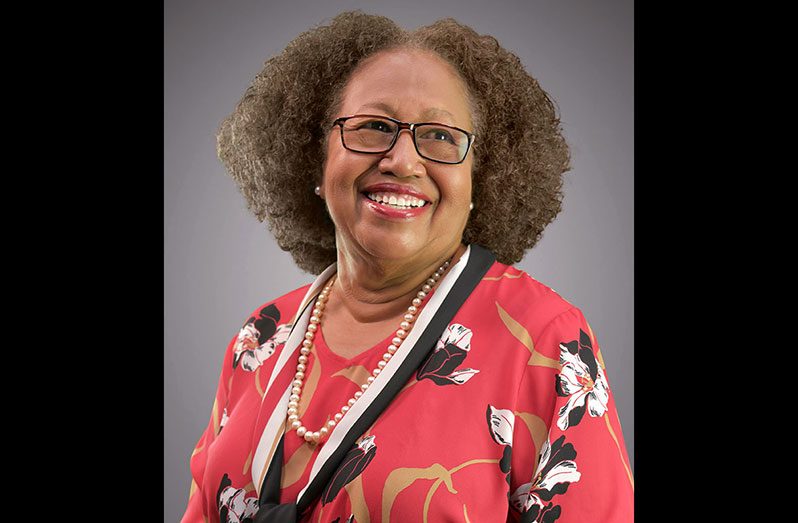–for climate adaptation and mitigation, says CARICOM Secretary-General
CARICOM Secretary-General Dr. Carla Barnett makes no bones about the fact that women and girls are effective and powerful leaders and change agents for climate adaptation and mitigation.
And this is notwithstanding that women’s capacity to cope with the shocks of climate events are being limited by gender inequalities and cultural norms, Dr. Barnett said.
This bias against women, she says, restricts their decision-making capacity in disaster situations, and limits their ability to escape natural disasters, even though they are intimately involved in environmental sustainability initiatives around the world, and their participation and leadership result in more effective climate action.
In a message to mark International Women’s Day today, Dr. Barnett called for female-headed households, estimated to be 40% in both CARICOM and the wider Caribbean, to be included in the equation when developing climate and disaster risk policies, programmes and projects.
Making the case for her position on the subject, Dr. Barnett said: “Overall, women head larger households than men, and their livelihoods are more vulnerable to the impact of disasters. They also struggle more than men to find alternative livelihoods, and to re-enter the formal employment sector. As is the case during the on-going COVID-19 pandemic, disasters disproportionately increase women’s care burden, the incidence of gender-based violence and job losses.”
This year, IWD is being observed under the theme, “Gender Equality Today for a Sustainable Tomorrow”, which recognises the contribution of women and girls around the world who are leading the charge on climate change adaptation, mitigation and response to build a more sustainable future for all.
MORE OPPORTUNITIES
In the circumstance, Dr. Barnett is calling for an increase in opportunities, and the minimising of the constraints to empowering women and girls to have a voice, and to be equal partners in decision-making on climate action and disaster management.
“By advancing gender equality today as a powerful driver of development, and working towards ensuring lives free of violence and poverty, we will secure a sustainable tomorrow, and a thriving Community for all. It is my pleasure and privilege to wish everyone a Happy International Women’s Day,” she said, adding:
“Achieving gender equality, in the context of the climate crisis and disaster risk reduction, is one of the urgent global challenges of the 21st Century.
“Climate change will continue to have severe and lasting impacts on our environment, and, therefore, on our economic and social development. The most vulnerable and marginalised among us, including indigenous and rural women, experience the most severe effects.”
According to UN Women, women constitute 70 per cent of the world’s poor, and are more likely to work or live on marginal lands, and in informal settlements.
IWD is being observed across the world as an opportunity to celebrate the important contributions, and tireless service that women around the world give every day, at home, in their communities and beyond, and in every sphere of life.
It provides an important platform to highlight the challenges women face in realising their full human rights, and to engage men and boys as champions for gender equality.
“We celebrate their many achievements, and recognise the progress that has been made towards gender equality, while acknowledging that there is still much more work to be done,” Dr. Barnett said.



.jpg)








